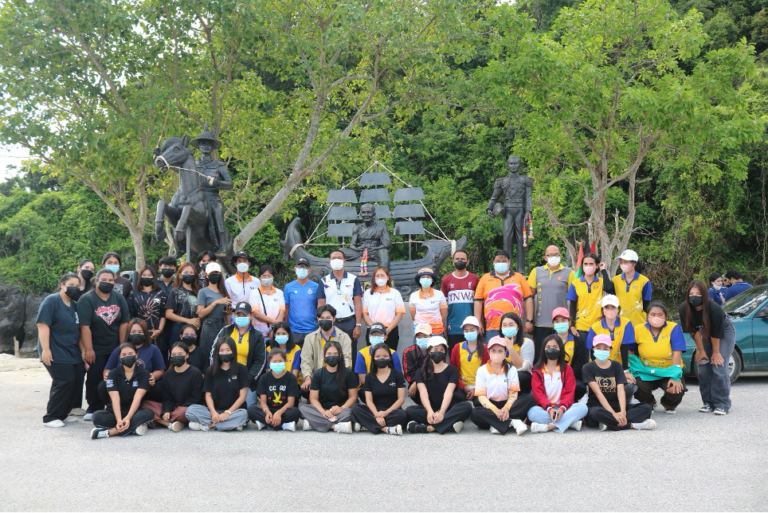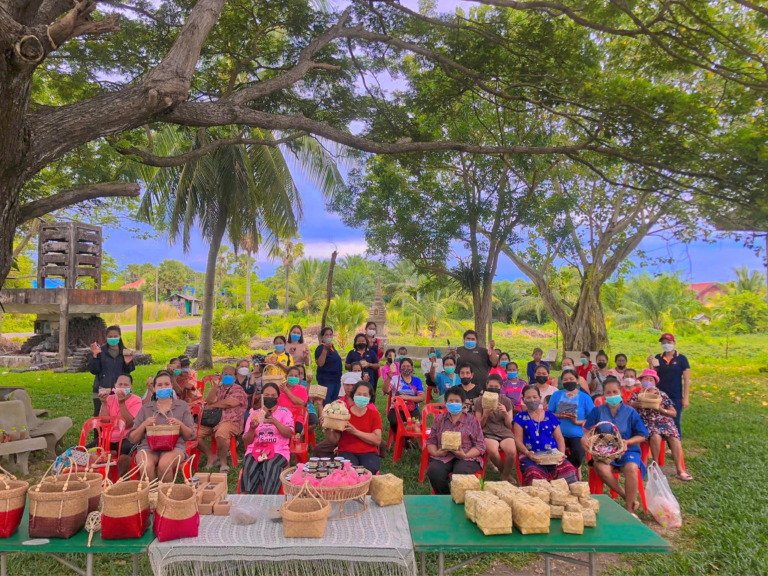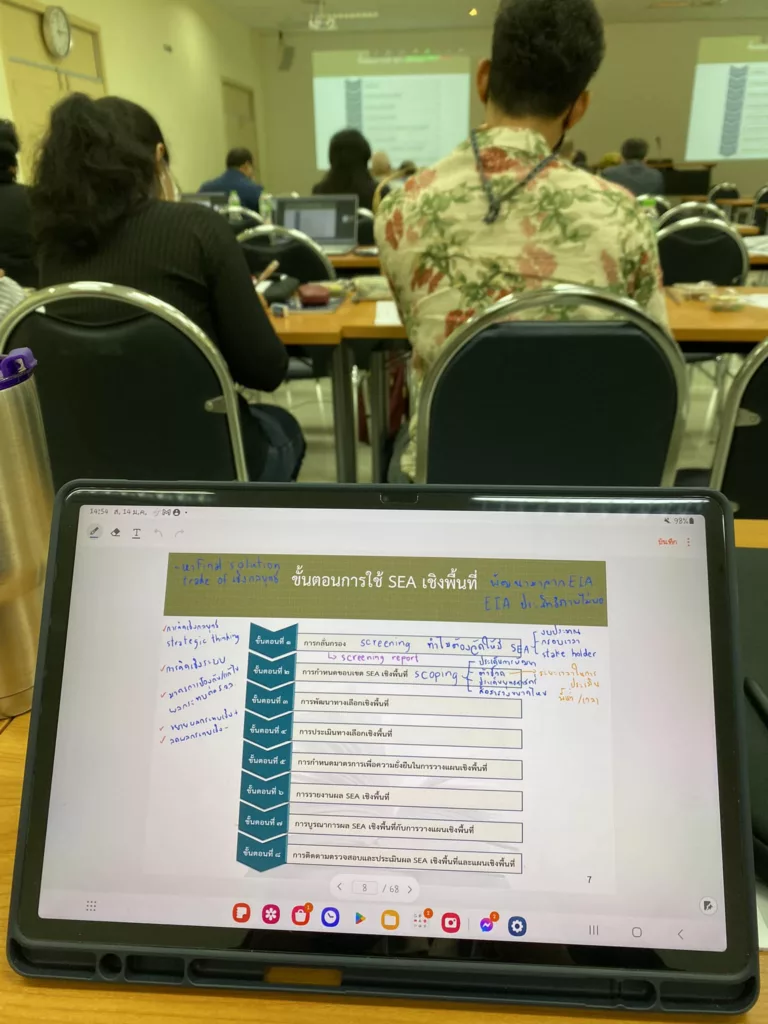Reporters : Assoc.Prof.Dr. Pornsil Seephueak
Asst.Prof.Dr. Prapot Maliwan
Assoc.Prof.Dr. Pornsil Seephueak
Asst.Prof.Dr. Nion Chirapongsathonkul
Dr. Worawitoo Meesook
Evidence Date: 9 March 2022
Indicator : 15.4.2
Related SDGs:
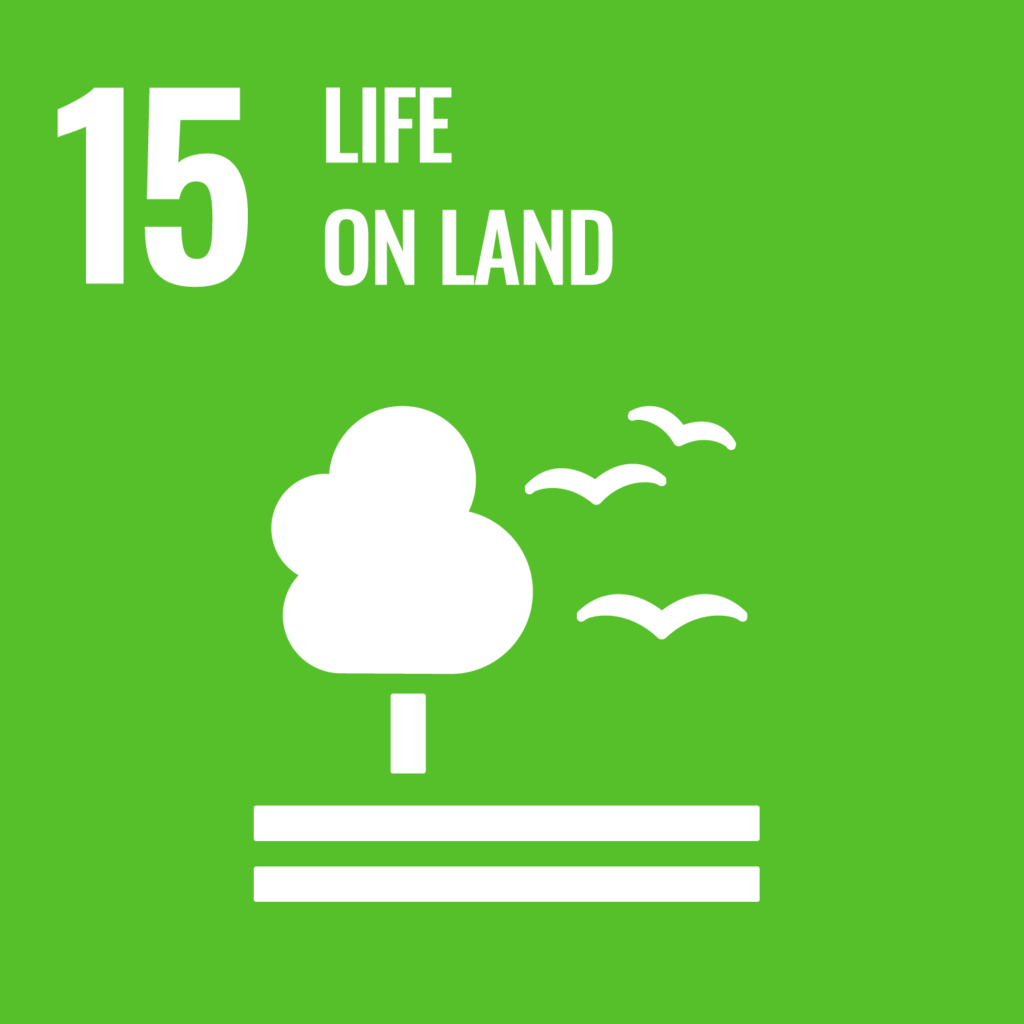
To reduce plastic waste, initiatives that aim at minimizing the use of plastic waste while creating positive outcomes for environment and communities have been increasingly focused. The key point begins with the proper disposal ensuring that plastic waste is disposed of properly. Afterwards, the separated waste can be recycled or reuse or added social value.
On March 9, 2022, Asst.Prof. Napadol Sarapakdee, a faculty member of the Civil Engineering program at the College of Industrial Technology and Management, RUTS Khanom Campus, in collaboration with Asst.Prof. Kamolnan Chiewratnachot, a faculty member of the Business Administration program, had the honor of being guest lecturers to impart knowledge on waste management and waste separation. This knowledge transfer event took place at the Extracurricular Study and Lifelong Learning Center in Khanom District, Nakhon Si Thammarat Province.
Within the framework of the community and social development study program, a practical training workshop titled “Turning Waste into Value, Reducing and Separating Organic Waste” was organized. The aim was to educate and promote understanding among the target population regarding proper waste reduction and separation practices in households. The program also encouraged income generation from plastic waste to increase its value. It raised awareness and encouraged community participation in the correct waste separation process. The training was conducted for members of the Tha Kam Community Cooperative in three sub-districts of Khanom District.
By reducing plastic usage and adding value, it’s possible to achieve a more sustainable and environmentally friendly approach to managing plastic waste. This not only helps in conserving natural resources and reducing pollution but also contributes positively to communities and economies.
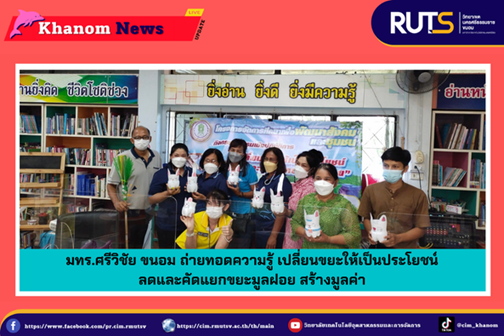




Related Links:
https://www.rmutsv.ac.th/th/announcement-sdgs
https://statute.rmutsv.ac.th/file/3718.pdf
https://cim.rmutsv.ac.th/th/news/2237-1647319088-2882-150322

